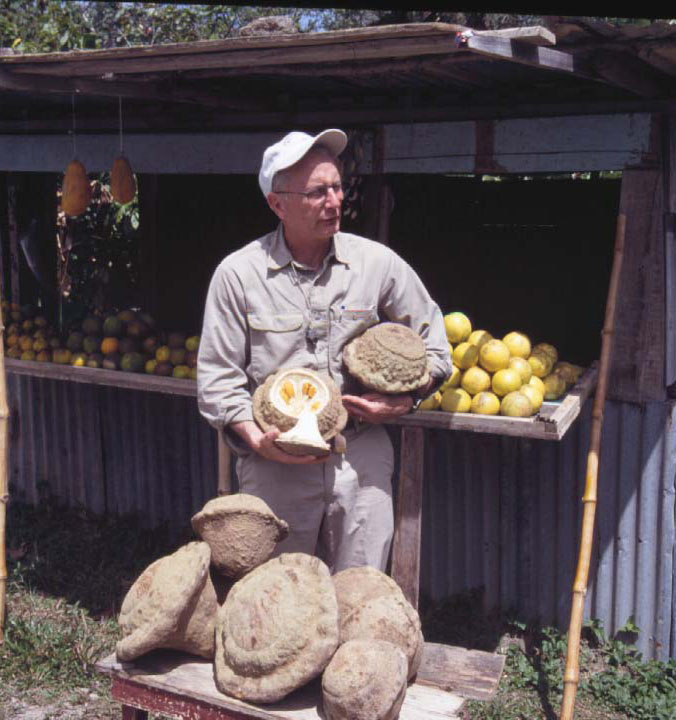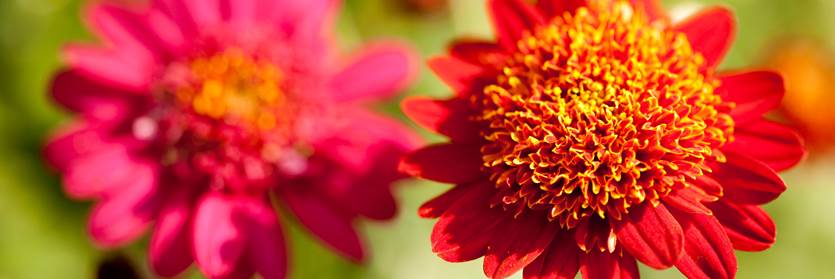Spotlight on: Scott A. Mori, Ph.D.
Posted in People, Science on March 4 2009, by Plant Talk
Batty for Brazil Nuts
During The Orchid Show: Brazilian Modern, Plant Talk takes a look at some of the research and conservation efforts of The New York Botanical scientists whose work is focused in Brazil. This interview was conducted by Jessica Blohm, Interpretive Specialist for Public Education.
 Dr. Scott Mori holds the giant, woody fruits of the sapucaia, a species belonging to the Brazil nut family.
Dr. Scott Mori holds the giant, woody fruits of the sapucaia, a species belonging to the Brazil nut family.Photo by Carol Gracie
“The diversity of Brazil is amazing,” Botanical Garden scientist Dr. Scott Mori says. “I grew up in Wisconsin, where there are 74 different species of trees in the entire state. In Brazil, there can be 300 different species of trees in the area the size of two American football fields. That means that every second tree that you look at is something different.”
Scott, who once met Roberto Burle Marx, the inspiration for this year’s Orchid Show, at a party in Brazil, is helping to preserve the Brazil nut family (Lecythidaceae), which includes the Brazil nut we eat and several hundred other species of magnificent, towering trees. Brazil nut seeds are easy to harvest because they are trapped inside woody, cannonball-like fruits that fall from the tree at maturity. These “packages of seeds” are simply picked from the ground and broken open to yield a harvest of 20 to 30 Brazil nuts per fruit. Brazil nuts are an economically important, non-timber forest product in the Brazilian Amazon.
Over the course of 40 years studying New World rain forests, Scott, the Nathaniel Lord Britton Curator of Botany, has described 51 new species of the Brazil nut family. His research has demonstrated many co-evolutionary relationships among species of the Brazil nut family and different animals, including bats and bees. Understanding these plant-animal interactions is an important part of understanding the plant’s biology and how best to conserve these plants. Scott co-authored Seed Dispersal by Bats in the Neotropics, which will be released in late April by NYBG Press.
“I am a hard-core scientist,” says Scott. “I go out into the field, collect plants, bring the specimens back here, and study the specimens.” This increased understanding of tropical plants, how they function and what they need to survive, often leads to efforts to conserve the rain forest habitats in which they are found.
Scott has shared his expertise on the Brazilian Amazon with Botanical Garden supporters on dozens of ecotours, combining informal natural history instruction with a myriad of other activities such as swimming in the tea-colored waters of the Rio Negro, hiking in the rain forest, fishing for piranha, early morning birding by canoe, and nocturnal trips for alligator spotting. He will lead his next ecotour, Ten Days in Brazil, October 10–21 with Botanical Garden President Gregory Long and James Miller, Ph.D., Dean and Vice President for Science. For additional information contact Brian Boom, Ph.D., Special Assistant to the President, at bboom@nybg.org or 718.817.8708.

